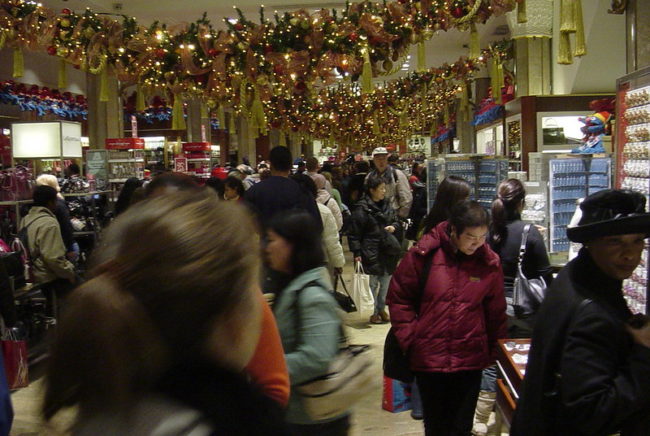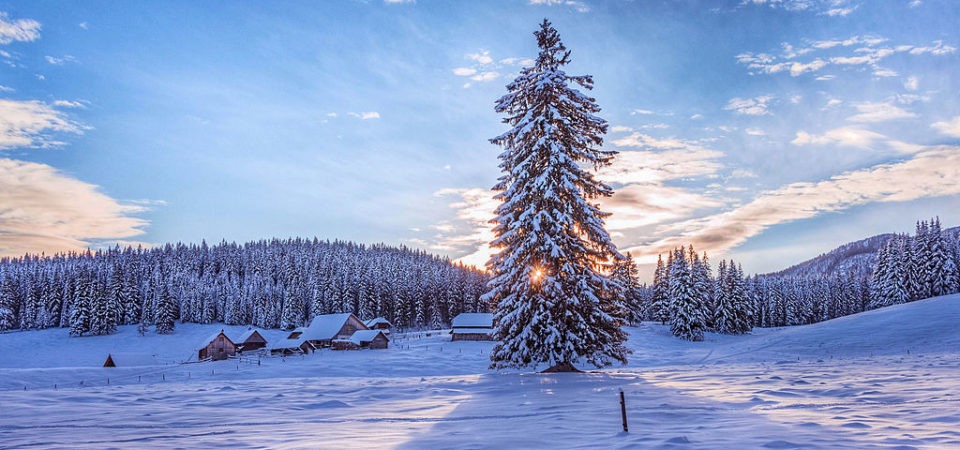Back in September, we asked: Is it possible to spend the festive season without the usual “shop ’til you drop”? Can we celebrate this precious time without excessive consumption? What can you do or give to kids instead and still make it magical and special?
Here we have summarized your suggestions. Also, check out other resources around mindful consumption below.
- Skip the end-of-year maddening hypocrisy and create an opportunity for children to give a meaningful, self-made, and substantiated something to earn their next year of taking things less for granted. Bad for the economy? What is bad for the economy is having poorly educated, out-of-control children, growing up taking everything for granted. These young people will not have the required competencies to run a company, except a slave sweatshop. Wake up and make sure the choices you make are really yours – and make them count. So yes, we can.
- One alternative to the shop until you drop is related to wrapping presents you do give. Pieces of fabric can be used as reusable wrapping and tied with a ribbon/string. We’ve been using the same ones for the last 4 years and use them for all occasions. After the item is opened, you store it away for next time. We don’t trim them for specific items, just tuck in the edges. You can also do something similar with gifts to others by explaining the wrapper to the recipient of your gift before they open it. This gives you the option to collect your wrapping and store it for next time, or to gift the wrapping so the recipients can reuse it for their presents.
- For people who are starting families, establishing holiday traditions that aren’t related to gifts helps make the season festive and is a good time to consider how many gifts you want to be the norm for your family -and keep it a small number.
- If you’re not religious but were raised Christian, you don’t have to make Christmas a tradition in your family. It’s okay to let it go, and if you want an alternative Soviet-style New Year (includes a tree and magical gift-giving elder) or making something up for winter solstice/Yule, these are totally legitimate options. The family you grew up in will adjust and maybe be inspired by your traditions.
- Skip the turkey. Any time one attempts to grow a lot of something for a specific day, this will cause ecological harm (at least in a world of 8 billion humans). On the one hand, it feels good to all eat the same thing, and participate in a ritual that families across America and other countries are participating in. On the other, growing turkeys in masses for one specific day means a dependency on factory farming. Although there are some free-range turkeys the vast majority of the 22 million turkeys eaten at Christmas in the US each year are grown in pens, force-fed and abused during their short lives, and then cruelly slaughtered – their bird nature suppressed at every turn. Of course, to be kinder and more resource efficient, you could also go vegetarian.
Holiday gifts a different way: Think handmade, local, and experiential!
More thoughts and ideas from Michele Guieu, MAHB Arts Director:
Holiday presents should never have been about quantity and monetary value. They should not be about rushing around and stressing about all the “things” we need to find. They are about sharing love, a moment. They are about the joy you have to find them or make them and give them. One of the cognitive biases we have to abandon is to constantly compare ourselves to others. It is difficult because publicity is here to tell us how much the people we love are worth regarding the gifts we should buy for them. But there is a life after consumerism; it is something to embrace with joy. Some of our beliefs are incompatible with the necessity to curb our energy consumption and our extractive and pollutant economy. The holidays are testing our cognitive dissonance! Read Michele’s full article here.

Also check out:
How the ‘Santa lie’ helps teach children to be good little consumers. It’s that time of year – the season when parents, schools, and retailers sell one of the most magical lies to children: Santa Claus.
Has consumerism taken over Christmas? Two marketing experts discuss.
‘It feels like a never-ending conveyer belt’: The people giving up on Christmas consumerism. Over the past few decades, Christmas has become synonymous with overconsumption. But these people are proving there are more sustainable ways to celebrate.
Dreaming of a frugal Christmas? Meet the people who’ve stopped shopping. There is a growing ‘minimalism movement’ that puts less emphasis on buying things, and more on people, places, and happiness.
Top Tips For A Sustainable Christmas. Every pound, euro, dollar, or other we spend is a vote for the world we want to create. So here are some tips on how to make your festivities friendlier to our one shared home.
10 ways to have a more sustainable Christmas. Christmas is a brilliant time to be part of the movement towards a more sustainable future.
How to cut your consumption this Christmas. Christmas is a special time of year, but the pressure to spend money is everywhere. Over-consumption adds to the climate crisis because the more we buy, the more resources are extracted and climate emissions are generated.
8 Tips for a Non-Consumerist Festive Season. How can a celebration that has nothing to do with buying things be returned to values of kindness and care? Also, toys can enrich children’s lives – but we don’t necessarily have to buy them.
How to Have a Non-Consumerist Christmas. If you want to get back to a Christmas holiday that includes more than stressful trips to the mall, here’s how.
Energy at Christmas – how to reduce your consumption during the festive period. Christmas is a time when we can see our energy bills soar.
Ways to reduce waste and save money this Christmas. Many of us need to spend less money on Christmas this year, but hopefully, by doing so, we could save a load of waste as well.
The final doubling. Politicians and economists talk glowingly about growth. They want our cities and GDP to grow. Jobs, profits, companies, and industries all should grow; if they don’t, there’s something wrong, and we must identify the problem and fix it. Yet few discuss doubling time.
If that doesn’t help, watch the film Growthbusters here:
Wishing you all a happy and peaceful festive season.
The views and opinions expressed through the MAHB Website are those of the contributing authors and do not necessarily reflect an official position of the MAHB. The MAHB aims to share a range of perspectives and welcomes the discussions that they prompt.

